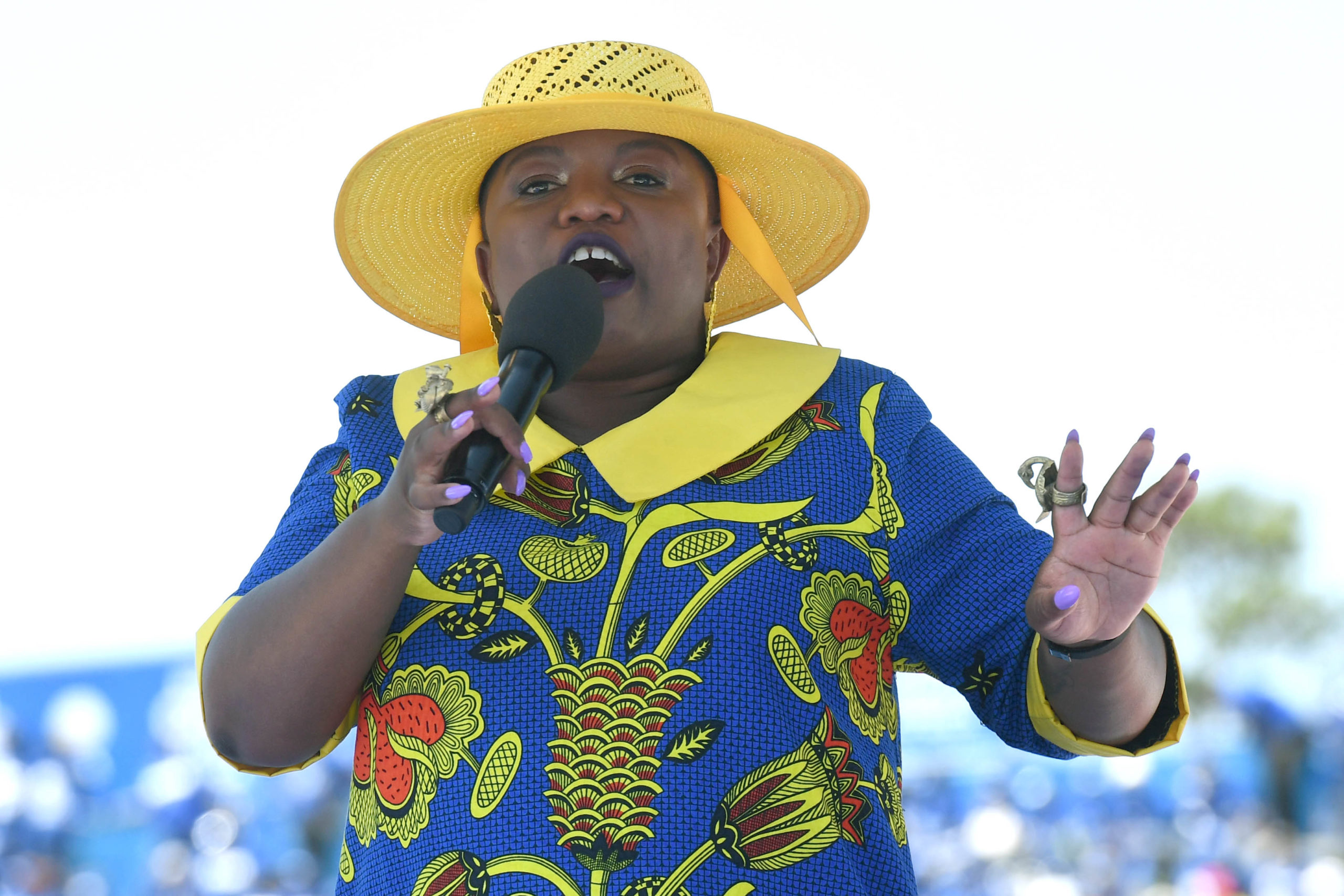The DA’s narrow liberal ideology and intolerance of those espousing equity and black economic empowerment within the party spelt a death knell.

Phumzile van Damme during the Democratic Alliance (DA) manifesto launch at the Rand Stadium on 23 February 2019 in Johannesburg. Picture: Gallo Images
A mid the Democratic Alliance (DA) lurching from yet another resignation of a high-profile black leader, political analysts yesterday put the blame for the departure of Phumzile van Damme from DA parliamentary benches on the weak leadership of party chief John Steenhuisen.
With Van Damme citing a powerful clique within the party as reason for resigning from her position as a DA MP, University of South Africa political science lecturer Professor Dirk Kotze said operating networks jostling for the control of Steenhuisen were much wider.
They included the Free Masons, Afrikaner Broederbond, remnants of former National Party members and a grouping of Western Cape politicians.
In explaining her resignation, Van Damme tweeted that she resigned as MP and not as a DA member, a stance Kotze said demonstrated her strong allegiance to the party.
Blaming Steenhuisen for weak leadership, Kotze said the DA did not give room to other divergent political views, rendering it non-inclusive, with some white members “threatened by the emergence of vibrant and young leaders like Van Damme, Lindiwe Mazibuko and Mbali Ntuli”.
The DA’s narrow liberal ideology and intolerance of those espousing equity and black economic empowerment within the party spelt a death knell – bad for a party preparing to contest local government elections later this year.
Kotze said Van Damme’s resignation was likely to hurt the DA at the polls – already reeling from being trounced by the ANC and Gayton McKenzie’s Patriotic Alliance in this week’s by-elections.
He described Van Damme’s role in parliament, from being a whip to serving as national spokesperson, as “significant”.
Attempts by Saturday Citizen to get comment from Steenhuisen failed, with his phone ringing unanswered.
Van Damme’s resignation followed the departure of several DA black leaders, including former leader Mmusi Maimane, Mazibuko, John Moody, Patricia de Lille and Herman Mashaba.
Recently, there has been an attempt to purge former Western Cape transport MEC Bonginkosi Madikizela over his questionable qualifications, after his announcement to contest as mayor of Cape Town.
Institute for Global Dialogue political analyst Sanusha Naidu, who also said Steenhuisen was a weak leader, said there were indications the DA was “returning to the white laager”.
“Van Damme’s resignation is not something that we should be shocked by, given the way issues have transpired and handled by the party leader,” said Naidu.
“This is significant of a tense relationship with the new leadership of Steenhuisen, given the objections she raised on whether she could still carry on and execute her duties in parliament.
“Whatever medical challenges she had, the fact that she came to the decision to resign, [showed] that all avenues were exhausted within the party, on such issues as some individuals being squeezed out.
“The party is going through its own existential crisis – issues within the DA as the official opposition, going through its own fragmentation.
“For Van Damme, it may have been too energy-sapping to remain as a DA MP, dealing with its own dynamics on how to deal with self-correcting – in line with social cohesion and transformation.
“On the one hand, the DA talks about a meritocracy kind of democracy and that does not sit with current population dynamics.
“While conceding talking about nonracialism, the DA is talking about going back to the future, in a way not representative of our demographics.
“We are in an age where the respect of rights and racial harmony is key. The DA doesn’t see the resignation of Van Damme as something that will hurt them – an indication of returning to the white laager.”
brians@citizen.co.za
Download our app